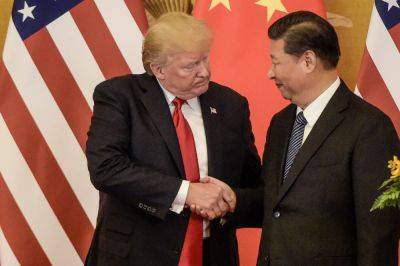China and Russia no longer perceived as top security threats, research finds
China and Russia are considered less of a threat to Western populations now than a year ago, as public concern pivots to non-traditional risks such as mass migration and radical Islam, new research said.
Public perception of traditional hard security risks remains higher now than three years ago but has fallen since 2022, the year Russia invaded Ukraine, survey results from the Munich Security Index 2024 showed.
The findings point to a disconnect between public sentiment and political policy as world leaders meet later this week at the Munich Security Conference to discuss what the organizers called a "downward trend in world politics, marked by an increase in geopolitical tensions and economic uncertainty."
Top of the agenda will be the ongoing wars between Russia and Ukraine and Israel and Hamas, as well as NATO expansion and a potential return of Donald Trump to the White House.
Public opinion was broadly aligned on medium-term economic and geopolitical risks, however, with the majority of respondents in Western countries of the view that China and other powers from the Global South would become more powerful over the coming decade while Western powers were more likely to stagnate or decline.
In the polling of 12,000 people across G7 countries plus Brazil, India, China and South Africa, few Western respondents believed that their country would be more secure and wealthy in 10 years' time. By contrast, most of those in emerging economies thought they would be better off financially and in political terms.
While Russia ranked as a top threat for G7 countries last year, the majority of those perceived risks have since faded, according to the study conducted from October to November 2023.
Only citizens from the U.K. and Japan







